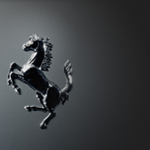HSBC bank on Tuesday said its first-quarter profits more than doubled, helped by a reversal in credit losses as well as its ongoing restructuring and pivot to Asia.
Adjusted profit before tax surged 109 percent to $6.4 billion from a year earlier although reported revenue slipped five percent to $13.0 billion in part because of low interest rates.
The results, which beat estimates, are a shot in the arm for the Asia-reliant lender after a tumultuous year that saw its fortunes take a hammering from the coronavirus and simmering geopolitical tensions.
“I am pleased with our revenue and cost performance, but particularly with our significantly lower expected credit losses,” Chief Executive Officer Noel Quinn said in a statement.
Quinn struck a cautiously optimistic note for the near future with hopes high that mass vaccinations may start to ease pressure on the global economy, even as infection numbers continue to soar.
“The economic outlook has improved, although uncertainties remain,” he said.
Bright spots included a $400-million reversal in credit losses as well as its Europe and US regions returning to profit.
In the UK, pre-tax profits were more than $1.0 billion for the quarter.
Britain’s vaccine roll-out “has really given us the confidence that the UK economy has the potential to rebound”, Quinn said in a call with reporters.
Like all banking giants HSBC was battered by the coronavirus last year with a 30 percent plunge in 2020 profit.
Under Quinn, the bank has embarked on a dramatic restructuring, rolling out plans to cut its workforce by about 35,000 to drive down costs and to refocus on its most profitable areas — Asia and the Middle East.
– Source of vulnerability –
HSBC makes 90 percent of its profit in Asia, with China and Hong Kong the major drivers of growth.
In February it published a new strategy laying out plans to redouble its attempt to seize more of the Asian market.
Weighed down by low interest rates, it is planning to seek out more fee-based income, especially wealth management for Asia’s increasingly affluent.
It recently announced four senior executives would relocate to Hong Kong from the bank’s London headquarters as part of its Asia pivot and it would plough an additional $6 billion into shoring up operations in the region.
Quinn, who is remaining in London, said Tuesday that the UK is a “good place” for an international bank’s headquarters, having recently highlighted London’s important role as a global financial hub.
At the same time, HSBC’s historical and present-day connections to China are both its major selling point and a source of vulnerability.
It has found itself more at risk than most global banks to the increasingly frayed relationship between China and western powers — especially after Beijing imposed a draconian security law on Hong Kong last year and cracked down on democracy supporters.
HSBC endorsed the security law, a move that led to criticism from lawmakers in Britain and the United States, and has frozen the accounts of some Hong Kong democracy activists at the request of local authorities.
At the same time the lender has found itself called out by Chinese state media for providing information that helped lead to the arrest in Canada of a top Huawei executive.
HSBC says it has to obey the laws in each jurisdiction it operates in.
But it warned political tensions would continue to be a risk.
“Evolving developments in Hong Kong, US policy on strategic Chinese industries, claims of human rights violations and other potential areas of tension may affect the Group in terms of the impact of sanctions, as well as regulatory, reputational and market risks,” the bank wrote in its profit statement.
Elsewhere, HSBC is keen to offload less profitable operations. In Tuesday’s profit update it said it was “continuing with negotiations” to sell its French retail division.
In the US, it said it was exploring “both organic and inorganic options for our retail banking franchise”.









